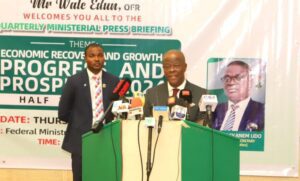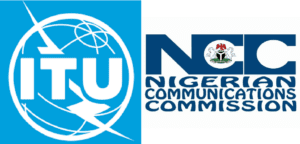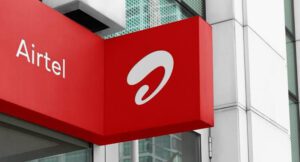
N93bn Debt: Mass disconnection looms for electricity consumers as Discos vow to go tough
…Experts fault Discos, NERC for Nigeria’s power sector challenges
By Seun Ibiyemi and Ariemu Ogaga
Following over N93billion owed by electricity consumers, there is indication that electricity Distribution Companies (DisCos) in the Country would embark on mass disconnection of customers to enable them pay up their debt with Generating Companies (GenCos).
This is coming after the Nigerian Electricity Regulatory Commission (NERC) in it fourth quarter report stated that DisCos collected N210.17 billion out of N303.11 billion billed to customers.
The Association of Power Generation Companies (APGC) had earlier in August 2022 said its members are owed N1.75 trillion for power generated for the electricity market since 2013.
NERC in its 2021/Q4 report, reported that the quarter had a collection efficiency of 69.34%.
Total billing by DisCos to customers in 2021/Q4 increased by N30.12 billion (+11.03%) from N273.00 billion recorded in 2021/Q3. Revenue collected by DisCos in 2020/Q4 rose by N16.64 billion (+8.60%) from N193.53 billion recorded in 2021/Q3 – this indicates a further reduction in collection efficiency in 2021/Q4 relative to 2021/Q3.
According to the NERC report, collection efficiency is an indicator of the proportion of the amount that has been collected from customers relative to the amount billed to them by the DisCos.
Collection efficiency of 70%, for instance, implies that for every N10.00 worth of energy billed to customers by DisCos, approximately N3.00 remained unrecovered from the billed customers.
The country’s total generation in 2021/Q4 was 9,480.21GWh, which is a 9.05% increase from 8,693.77GWh in 2021/Q3, says NERC. The increase in capacity was due to increased generation from Kainji, Jebba, Okpai, and Geregu plants.
Explaining why DisCos are unable to record 100% billing efficiency, NERC report explains that DisCos are unable to identify who consumes all their energy due to poor customer enumeration and low metering. The report says that billing efficiency combines technical and commercial efficiencies.
For instance, a 70% billing efficiency means that for every N10.00 worth of electricity delivered to consumers by a DisCo over a given period, the DisCo is only able to issue bills to cover N7.00 worth of energy, with N3.00 worth of energy remaining unbilled due to reasons ranging from energy theft, poor distribution infrastructure and inadequate customer enumeration.
Customer enumeration in this regard means that all potential power users in Nigeria, are contacted by their respective DisCos and asked about their future plans of purchasing power. Then, the quantities indicated by the customers are added together to obtain the probable demand for power.
In 2019, NERC ordered all DisCos to carry out customer enumeration, however, the exercise failed to meet its objectives.
In a swift response on recovering its debt from customers, Ibadan Electricity Distribution Company (IBEDC), Spokesperson, Mrs Busolami Tunwase said they will embark on mass disconnection for people who have been owing.
Busolami said, “We’ve been doing enlightenment programmes and keep explaining to them that electricity is no longer a social good; it’s no longer a social service, where it’s government owned and government pays everything.
“And at some point, we commenced mass disconnection for people who have been owing and who had appealed too; we made effort to an extent in debt recovery to make people realise that we mean business.
“Another thing is to encourage customers to get meter. When all our customers are metered, the issue of bills will be resolved. It has to be ‘pay as you go,’ and nobody will be held responsible for owing anything.
“We value the patronage of our customers also. We need to stay in business. So, usually we encourage roundtable discussion to find amicable resolution to the huge outstanding: Customers must pay for us to stay in business.
“It is no longer business as usual, the market operators must be paid. One thing I also understand is that most customers see us as the one who generates electricity and supplies to them.
“There is electricity value chain in the Nigerian power sector today, those who generate, those who transmit, and those who distributes.
“Beside, we now have the regulators. We buy, every electricity given to us is also metered; that means at the end of the month, we still have to pay for what has been distributed.”
Meanwhile, energy power experts have faulted DisCos and the NERC for challenges in Nigeria’s energy sector.
The Chief Executive Officer of Sage Consulting & Communications, Mr. Oyebode Fadipe and an energy, Agro consultant and foremost Nigerian Bamboo Expert, Mr Eleojo Joseph made this disclosure in a chat with Nigerian NewsDirect on Sunday.
Fadipe said, “This figure of N303bn, I’m sure, is premised on the actual energy sold to the DisCos at the trading points. The issue therefore is that of collection efficiency.
“It is also possible to query the billing efficiency of the DisCos. Did the DisCos bill all their customers? How many free riders have they brought into the billing net? Here, we see the obvious gap in metering of the customers and the role it plays in the revenue recovery process.
“What other factors hindered the DisCos from attaining 100% collection efficiency? Has the allowable technical loss been deducted from the N303bn? These are fundamental questions to deal with. Let me assume that the allowable technical loss has been dealt with before this figure was released.
“In terms of impact, what the shortfall of N93bn means is that the market is unable to enjoy full recovery and that means there is a distortion in its financial plans for a particular period. This will ultimately impact negatively on its growth trajectory.
“For instance, GenCos have always said they are owed over N1 trillion. It is shortfalls like this that bring the GenCos to such position of financial agony and incapacitation.
“For a market that is constantly complaining about poor liquidity, every shortfall brings it closer to poor performance. The DisCos therefore need to look not critically at all of the issue of AT&C losses as the big elephant in the house and see how to dimension it. A key strategy for dealing with this is investment appetite of the entire Market but especially the DisCos because they are the collection arm of the Market,” he said.
On his part, Mr Eleojo noted that, “Foremost, the DisCos and Consumers are playing mouse and cat game due to lack of trust. Most consumers feel shortchanged by DisCos due to over billing and lack of service. No electricity supplied yet the consumers are arm twisted and blackmailed to pay for their inefficiencies through disconnection.
“The DisCos has refused to supply prepaid meters to their consumers due to deliberate tactics. Yet NERC, the regulator, is watching and not enforcing compliance. The consumers has also resorted to all sorts of means to get electricity through back door and sometimes inducing the DisCos staffs to look the other way and getting paid.
“NERC is the bottleneck of the electricity sector. No transparency and accountability period. Why should DisCos not meter the consumers? Do you see such infractions in the telecoms sector? The FGN of Nigeria is solely to be blamed for the problem of the electricity. Electricity should really be commercialised and enabling laws should be drafted for the sector. Small and Mini grids should be incentivised for the sector to take off,” he submitted.



